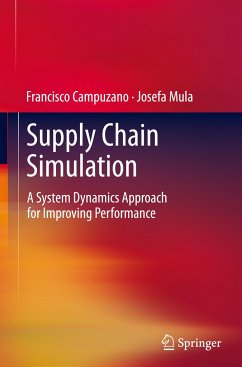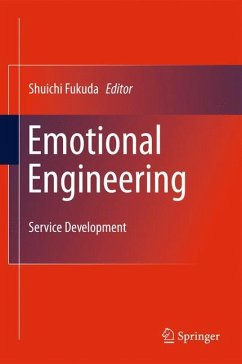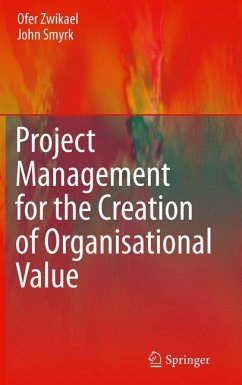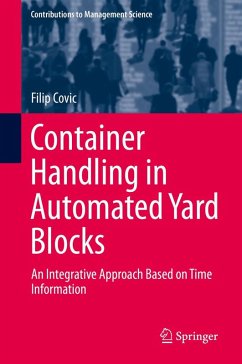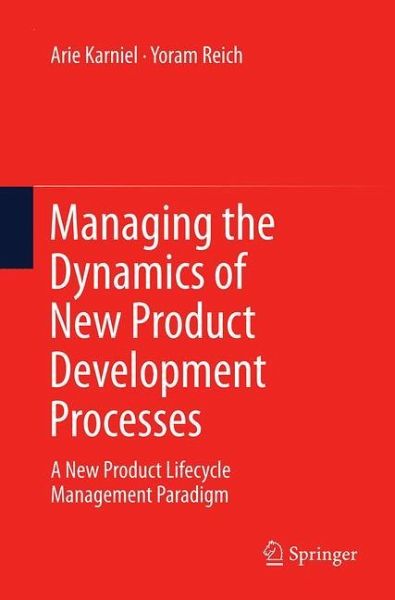
Managing the Dynamics of New Product Development Processes
A New Product Lifecycle Management Paradigm
Versandkostenfrei!
Versandfertig in 6-10 Tagen
113,99 €
inkl. MwSt.
Weitere Ausgaben:

PAYBACK Punkte
57 °P sammeln!
Managing the Dynamics of New-Product Development Processes merges product-based planning, process modelling, process execution, probabilistic simulations, and simulation based decision-making into one framework called the Dynamic new-Product Development Process. It provides readers with a means of improving the management of product development through enhanced methods and tools that are specifically tailored to the characteristics and challenges of such processes. It calls for a new Product Lifecycle Management paradigm of utilizing the managed product data for management of the product's dev...
Managing the Dynamics of New-Product Development Processes merges product-based planning, process modelling, process execution, probabilistic simulations, and simulation based decision-making into one framework called the Dynamic new-Product Development Process. It provides readers with a means of improving the management of product development through enhanced methods and tools that are specifically tailored to the characteristics and challenges of such processes. It calls for a new Product Lifecycle Management paradigm of utilizing the managed product data for management of the product's development process.
Within the framework, the methods used are enhanced or modified to fit the new-product development process requirements. Each specific method is exhaustively analyzed, from the basic definition of terms through a description of the state of the art of that topic and its limitations. Then, the method enhancements are illustrated by many examples, and discussed whilesuggesting further research directions. Finally, the enhanced methods are integrated and demonstrated by a test case. The main two methods described are the design structure matrix (DSM) and Petri nets, which are merged into a novel concept entitled DSM nets.
Managing the Dynamics of New Product Development Processes provides algorithms, proofs, and practical examples that can be used for general study of the issues concerned. The main concepts presented are applicable to systems engineering and can be used by practitioners of product development processes, such as designers, product managers, and process managers, as well as developers of process management tools for systems with dynamically changing process structures.
Within the framework, the methods used are enhanced or modified to fit the new-product development process requirements. Each specific method is exhaustively analyzed, from the basic definition of terms through a description of the state of the art of that topic and its limitations. Then, the method enhancements are illustrated by many examples, and discussed whilesuggesting further research directions. Finally, the enhanced methods are integrated and demonstrated by a test case. The main two methods described are the design structure matrix (DSM) and Petri nets, which are merged into a novel concept entitled DSM nets.
Managing the Dynamics of New Product Development Processes provides algorithms, proofs, and practical examples that can be used for general study of the issues concerned. The main concepts presented are applicable to systems engineering and can be used by practitioners of product development processes, such as designers, product managers, and process managers, as well as developers of process management tools for systems with dynamically changing process structures.






